This article is part of our “FOIA Series” where we exhibit information gathered from these disclosures that is relevant to EB-5 investors. At the outset, we acknowledge the work of attorneys John Pratt and Edward Ramos— both of Kurzban Kurzban Tetzeli and Pratt — for their excellent FOIA litigation work that helped us obtain these documents.
Recently, the U.S. government has sought to restrict the entry and immigration of foreign nationals on grounds of “national security.” President Donald Trump has signed several executive orders and proclamations to this effect. The measures range from enhanced vetting of international Harvard University students, to social media monitoring of F-1 international students, to aggressive questioning by U.S. Customs and Border Protection officers at ports of entry.
EB-5 investors are not immune from such scrutiny. All foreign nationals in the United States will be subject to increasingly close examination of their personal history and affiliations. This trend, at a minimum, results in increased processing times for immigration petitions and, at worst, the unfair denial of petitions and other benefits. We at the American Immigrant Investor Alliance (AIIA) seek to inform EB-5 investors and petitioners of how this scrutiny occurs in practice.
As part of our mission to seek transparency in the EB-5 program for investors, AIIA regularly files requests for information under the Freedom of Information Act (FOIA) from U.S. Citizenship and Immigration Services (USCIS). As a result, we receive thousands of pages of FOIA disclosures, and our staff spends many hours forensically reviewing them to discern new information about the EB-5 program — to identify any threats to investor interests and new understandings that may help investors. Over the course of 2024 and 2025, AIIA received 13 dossiers of EB-5 information from USCIS totalling over 4,200 pages in length. Each dossier contained a great deal of new information about the EB-5 program, which we are now seeking to share.
The material acquired through FOIA can be pivotal to the success of an investor’s petition. For example, in a previous FOIA request we did a deep dive into the Source of Funds adjudication at the I-829 stage and uncovered a never before seen training manual confirming the agency does indeed scrutinize investor’s funds even after their I-526 has been adjudicated. Documents uncovered via that effort were used by several law firms and investors to respond to aggressive RFEs and NOIDs and obtain approvals.
Here, we will discuss internal adjudication standards used by USCIS to screen EB-5 petitioners. Specifically, we describe the national security factors that may lead an investor to undergo enhanced vetting by the Fraud Detection and National Security (FDNS) directorate of USCIS.
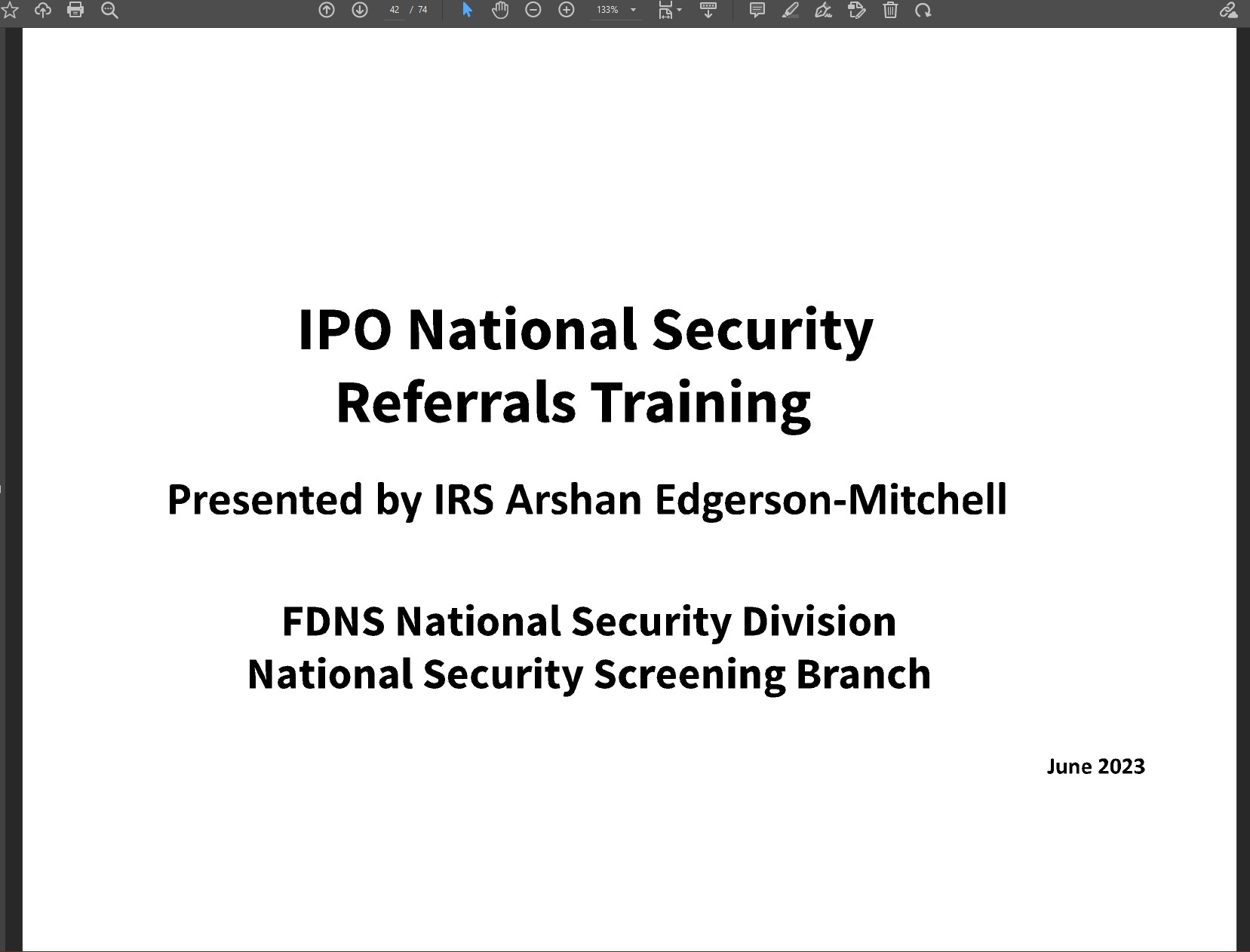 Above, a screenshot of a training presentation offered by the Fraud Detection and National Security Division of USCIS to case officers, instructing them on when to make referrals of EB-5 petitions for enhanced vetting.
Above, a screenshot of a training presentation offered by the Fraud Detection and National Security Division of USCIS to case officers, instructing them on when to make referrals of EB-5 petitions for enhanced vetting.
Our information will help immigrant investors be better informed about FDNS vetting, how to avoid it, and how to expedite it to avoid inordinate delays in processing. In the future, we will publish an article discussing the fraud indicators that may lead to FDNS vetting.
Fraud Detection and National Security Directorate (FDNS)
The United States seeks to prevent the immigration of individuals who may pose a threat to its national security. As a result, all prospective immigrants are subject to background checks. Historically, USCIS has aggressively sought to detect security risks and fraud. This has led to the denial or revocation of immigration petitions, including EB-5 petitions.
For these reasons, USCIS created the Fraud Detection and National Security Directorate (FDNS). The FDNS is the primary body that screens EB-5 investor petitioners for security concerns, and collaborates with the U.S. Intelligence Community and federal law enforcement agencies for this mission.
Within the FDNS is a sub-unit known as the “National Security Screening Branch.” Paraphrasing from the documents: This branch is responsible for vetting participants in the EB-5 program: i.e., investors, the sources of their funds, regional centers, and projects for national security threats.
When FDNS Flags an EB-5 Petition for Enhanced Review on Security Grounds
USCIS normally screens investors and the source of their funds for national security risks or criminal history. Usually, these requests are processed using the “vital statistics” of an investor — i.e., their names, date of birth, country of nationality, passport number, home address, and family members.
USCIS runs this information through various U.S. government databases: e.g., the Terrorist Screening Database (TSDB), National Crime Information Center (NCIC), Terrorist Identities Datamart Environment (TIDE), the Specially Designated Nationals (SDN) list, and the Specially Designated Global Terrorist (SDGT) list. When the vital statistics of an EB-5 petitioner match information in one of these databases, the FDNS may set aside that petitioner for additional screening. However, for most law-abiding petitioners, such a match may be unlikely.
Beyond mere database searches, USCIS case officers may make subjective judgments of when to set aside an EB-5 petition for further review. These decisions are based on “national security indicators” that may be present.
In the words of USCIS: “‘Indicator’ is just a fancy word that means clue or hint.”
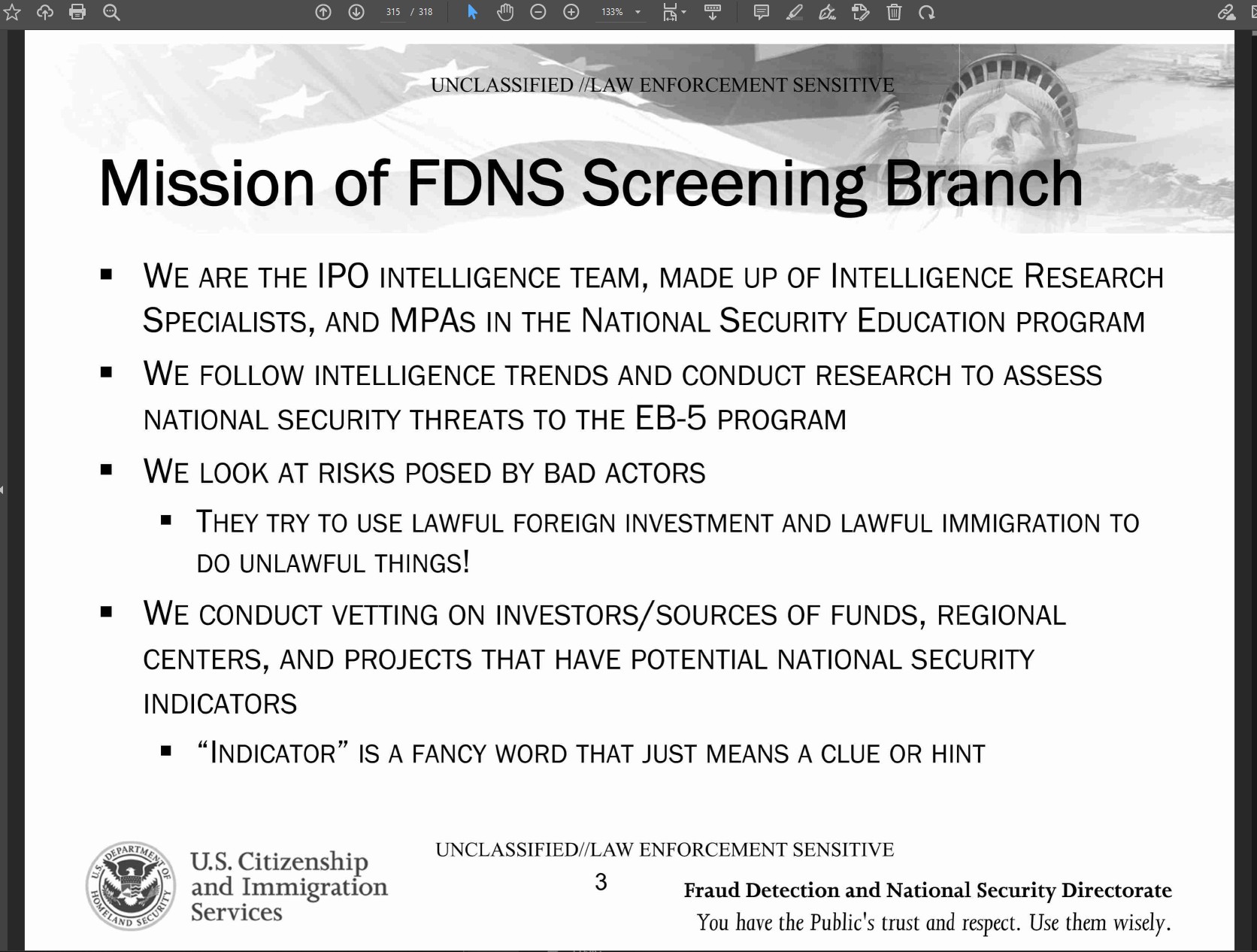
National Security Indicators Used by FDNS to Flag EB-5 Petitions
According to the FOIA disclosures received by AIIA, USCIS has “no exhaustive list of what qualifies as a [national security indicator].” They admit that a decision to flag a petition is “often…a judgement call based on the facts at hand.” However, USCIS has listed some types of national security concerns that it seeks when reviewing petitions those include terrorism, information or technology transfers (i.e., activity involving the transfer of dual-use technology with military applications, technology subject to export-controls, and weapons to foreign countries of concern), espionage and spying for foreign countries and sabotage (i.e., the destruction or damage of key infrastructure, intimidation, or coercion in order to influence a civilian population or the policy of a government).
USCIS has identified several “countries of concern” for the purpose of FDNS vetting. These are countries that are political rivals of the United States. Nationals of these countries (including dual citizens) are likely to be subject to additional screening. Countries include China, Russia, North Korea, Cuba, Iraq, Afghanistan and Syria.
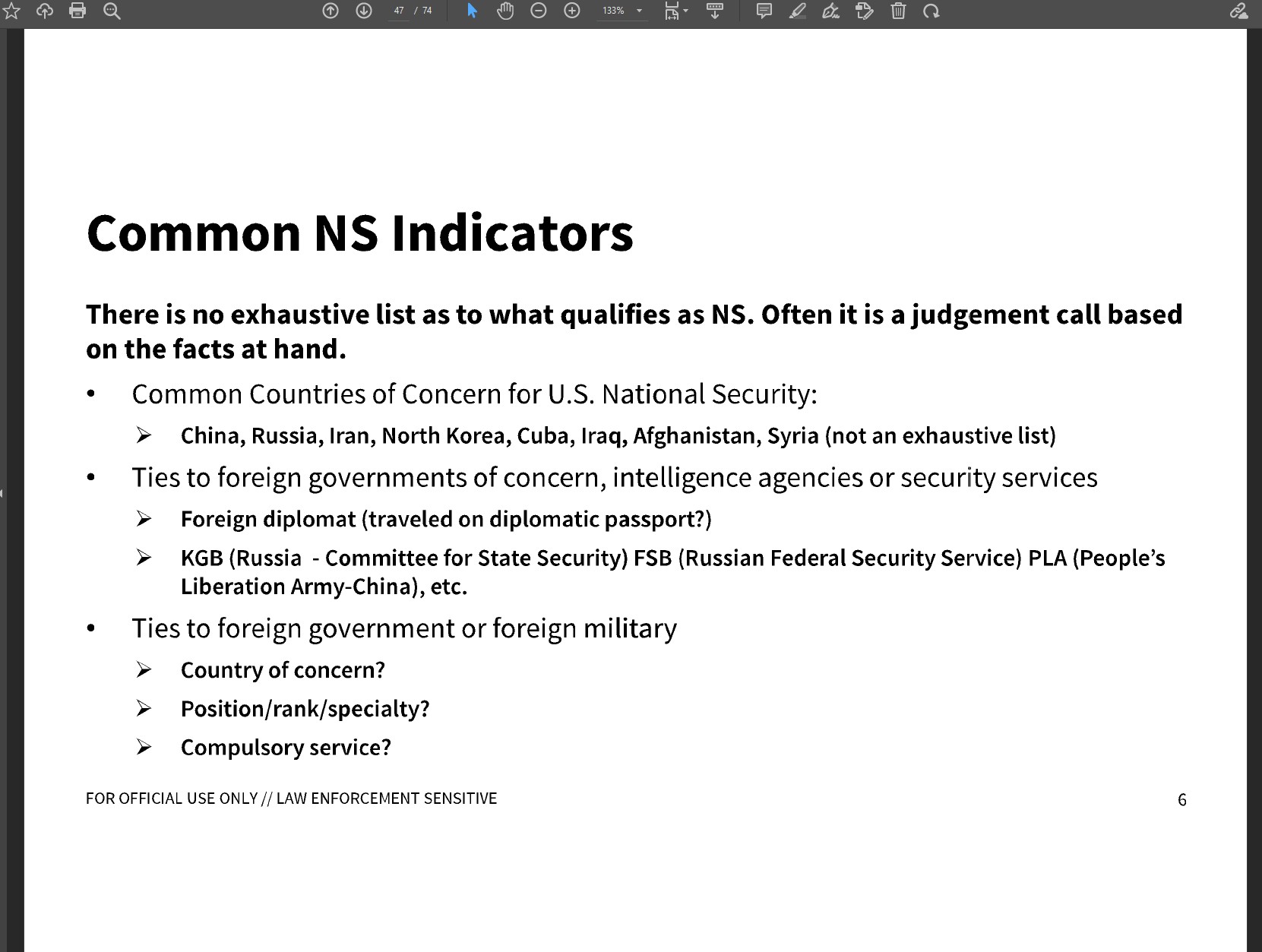
Beyond mere nationality, the FDNS uses certain biographical information as national security indicators. This entails the following:
- Foreign diplomatic service, whereby the person was issued a service, official, or diplomatic passport. This includes dependents of a principal diplomat, even if the dependent was a minor child at the time.
- Membership in a national security-related organization of such a country of concern. These are likely to be police and law enforcement agencies, intelligence agencies, military branches, paramilitary and reserve/territorial units, as well as government departments and ministries that oversee such agencies. The named examples are the Soviet Union’s KGB, Russia’s Federal Security Service (FSB), and the People’s Liberation Army (PLA) of the Chinese Communist Party (CCP).
FDNS recognizes that many countries may have policies of conscription that require all male citizens of a certain age to serve in their armed forces. “Compulsory service” is a factor that can mitigate against referral for additional screening. USCIS likely assesses the totality of circumstances when considering such a referral: i.e., the length of service, the involvement of the petitioner in armed hostilities, and the type of training received. - Ties to state-sponsored or military research institutes, whereby the person was a student, faculty member, associate, employee, or had any connection to such an institution. Many higher education institutions in foreign countries receive government funding for research; specifically, USCIS is looking for institutions with ties to national security organizations. Examples include the academic institutions of the CCP’s People’s Liberation Army (PLA) and People’s Armed Police (PAP) as well as the “Seven Sons of National Defence” universities, also in mainland China.
Determination Process if EB-5 Investor has a National Security Indicator
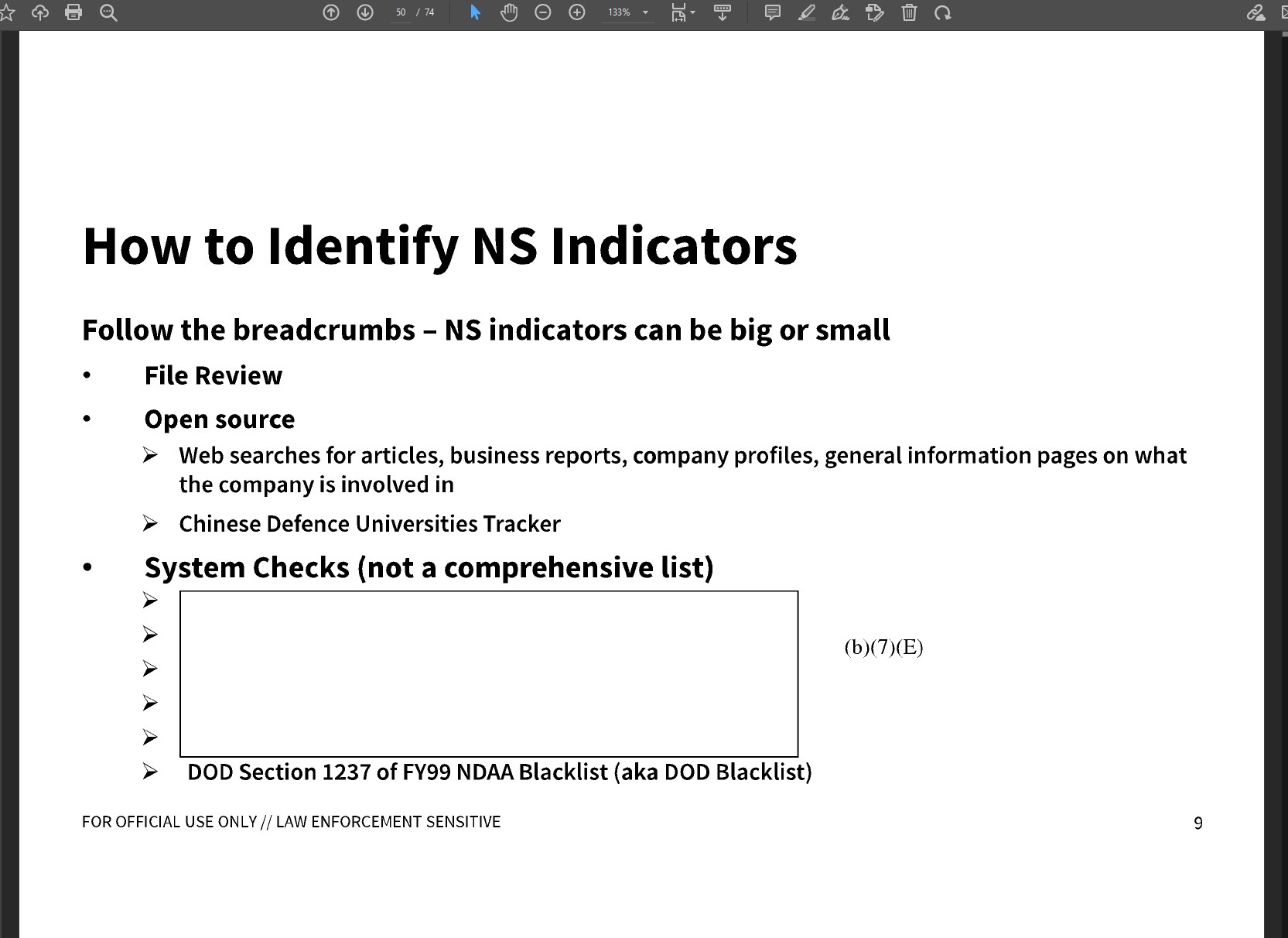
USCIS uses a variety of inputs to determine whether a person may have a national security indicator. FDNS has directed USCIS case officers to rely on the following information:
- File review, or the information that is included in the I-526/I-526(E) petition and any accompanying filings (e.g., an I-485 Application to Adjust Status). USCIS may also look at the petitioner/derivative’s whole immigration history–including possible inconsistencies between prior representations on visa applications (Forms DS-16)–for any information that may arouse suspicion.
- Open source searches, whereby the officer may review newspaper articles, websites, social media postings, and other information that is available to the general public. USCIS is increasingly looking to social media and drawing negative inferences from it.
- The China Defense Universities Tracker, which is a database of all higher-education institutions in China with ties to the CCP, its military and police divisions of the PLA and PAP, and other national defense bodies.
As shown in the thumbnail of this article, the FDNS has emphasized in disclosures that most EB-5 national security concerns are related to information and technology transfers, as well as espionage.
FDNS Referral During the EB-5 Immigration Process
USCIS has emphasized that FDNS referrals may occur at any stage of the immigration process. These may include cases where the underlying I-526/I-526(E) petitions are approved, even after the notice of approval has been issued to the petitioner.
Additionally, when petitions have been denied, or when a petition is withdrawn, the FDNS may still conduct a review and document its findings. The information will be available should the individual apply for an immigration benefit at any point in the future.
What Happens After an FDNS Referral?
When a petitioner or derivative is referred to FDNS for review, the FDNS will conduct an in-depth investigation — known as “enhanced vetting” — of the individual. The FDNS will rely upon any available source of information, emphasizing classified resources.
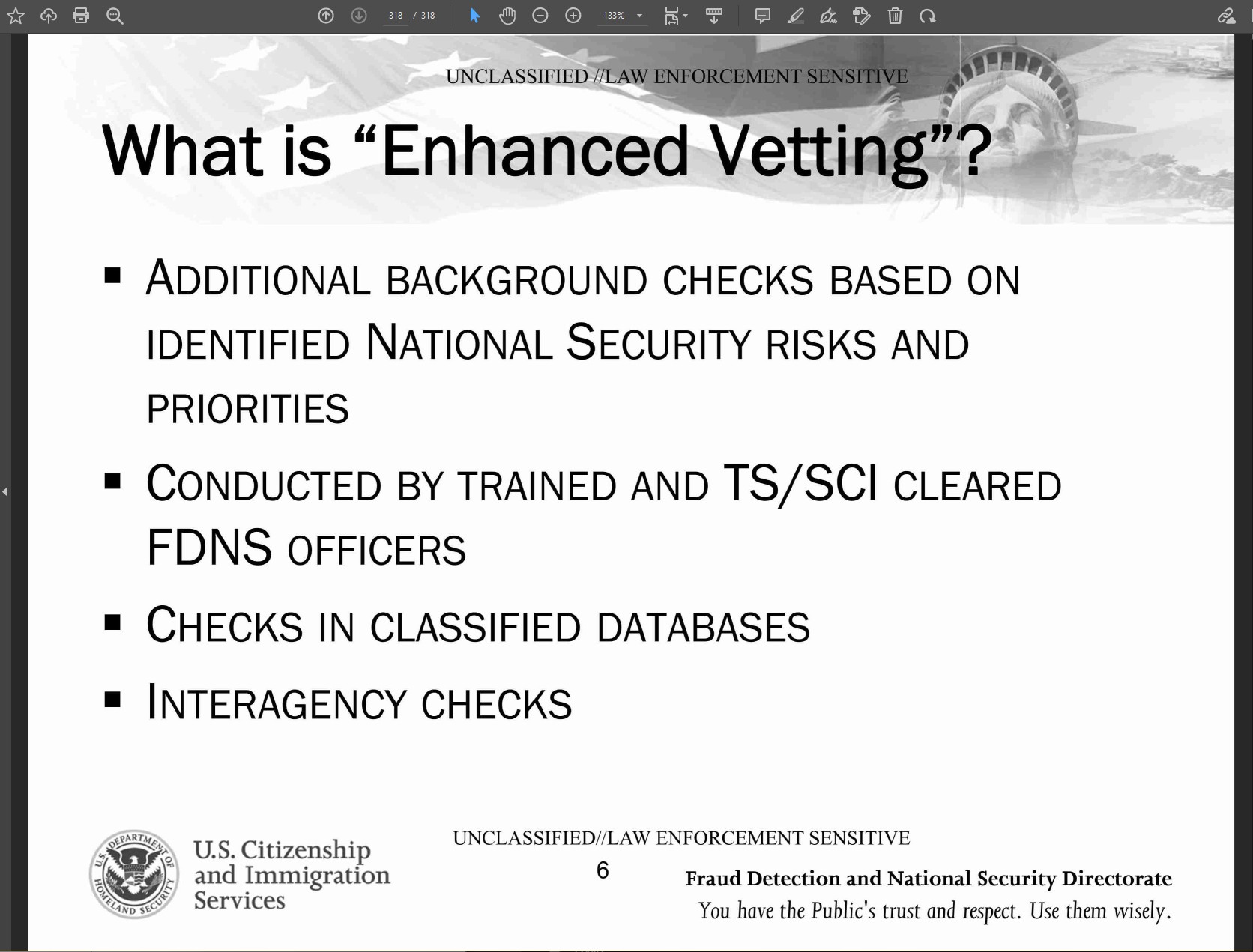
FDNS has also named some public sources it consults: PACER (i.e., the Public Access to Court Electronic Records system used by the U.S. Judiciary), FinCEN (i.e., the Financial Crimes Enforcement Network of the Department of the Treasury), and INTERPOL Red Notices issued by the International Criminal Police Organization.
Once FDNS completes its enhanced vetting, several outcomes may occur including:
- The FDNS issues a memorandum that is placed in the file of an application and issues a statement of findings regarding the review. This means that no concern has arisen after the vetting process.
- The petition is placed in a “Controlled Application Review and Resolution Process” (CARRP). This is the worst possible outcome for an EB-5 investor. CARRP reviews are lengthy processes where USCIS looks for ways to deny a petition based on pretextual reasons, when in reality the underlying motivation to deny the petition is rooted in national security grounds that may not be disclosed to the EB-5 investor. The initial steps of CARRP involve heavy scrutiny of a petition in order to find the most elemental reasons, even clerical errors, for a denial. In this situation, a petition may be subject to inordinate delays. The CARRP Program has a long history and was developed outside the EB-5 context. More information on the program and how it was uncovered through FOIA litigation is available here.
Exemptions and Ways to Expedite to FDNS review: While we do not have concrete information on this as many of the documents we received were heavily redacted we did manage to uncover some information that may be of use to EB-5 investors concerned about triggering FDNS reviews.
Exemption for certain Iranian banking ties: FDNS expressly instructs officers to not refer EB-5 petitions for enhanced vetting if the petitioner uses an Iranian bank merely as a pathway for funds to reach the United States. FDNS review is triggered only when the petitioner, derivative, or the source of funds is “directly tied to the bank via employment or ownership.”
Expediting of FDNS review and vetting: FDNS vetting can take a long time to complete, and the directorate is often backed up with many cases. However, based on FOIA disclosures (see image below), AIIA has learned of ways to expedite the process. They are as follows:
- Filing a petition for a writ of mandamus (effectively, a lawsuit) against USCIS in a U.S. District Court, for its failure to dispose of an application in a timely manner;
- Filing an appeal with the Administrative Appeals Office (AAO) of USCIS;
- Requesting the intervention of a Member of Congress to expedite the adjudication process. When a U.S. Senator or U.S. Representative contacts USCIS on behalf of a U.S. citizen constituent seeking to expedite a process (e.g., an EB-5 petition by a family member residing in their constituency), USCIS attempts to respond favorably by expediting its review.
Since our nonprofit’s early days we have consistently assisted and referred investors and stakeholders with all three of these options.
Chinese Investors and FDNS Referrals
It is well known that the United States has an increasingly tense relationship with the government of the People’s Republic of China (PRC). The U.S. government is actively concerned about the admission of Chinese persons who may support efforts by the PRC, and its ruling party the CCP, to compete against the United States.
Most critically, the U.S. government is concerned about the admission of skilled technical experts of Chinese nationality with experience in technologically-advanced Chinese industries, individuals who could pose espionage and counterintelligence risks, and persons who are otherwise loyal to the CCP. Perhaps more than any other country, USCIS is extremely vigilant about the vetting of mainland Chinese nationals in the EB-5 program.
Beyond the aforementioned, there are several factors that may raise the likelihood of FDNS vetting. We have highlighted them after the image below.
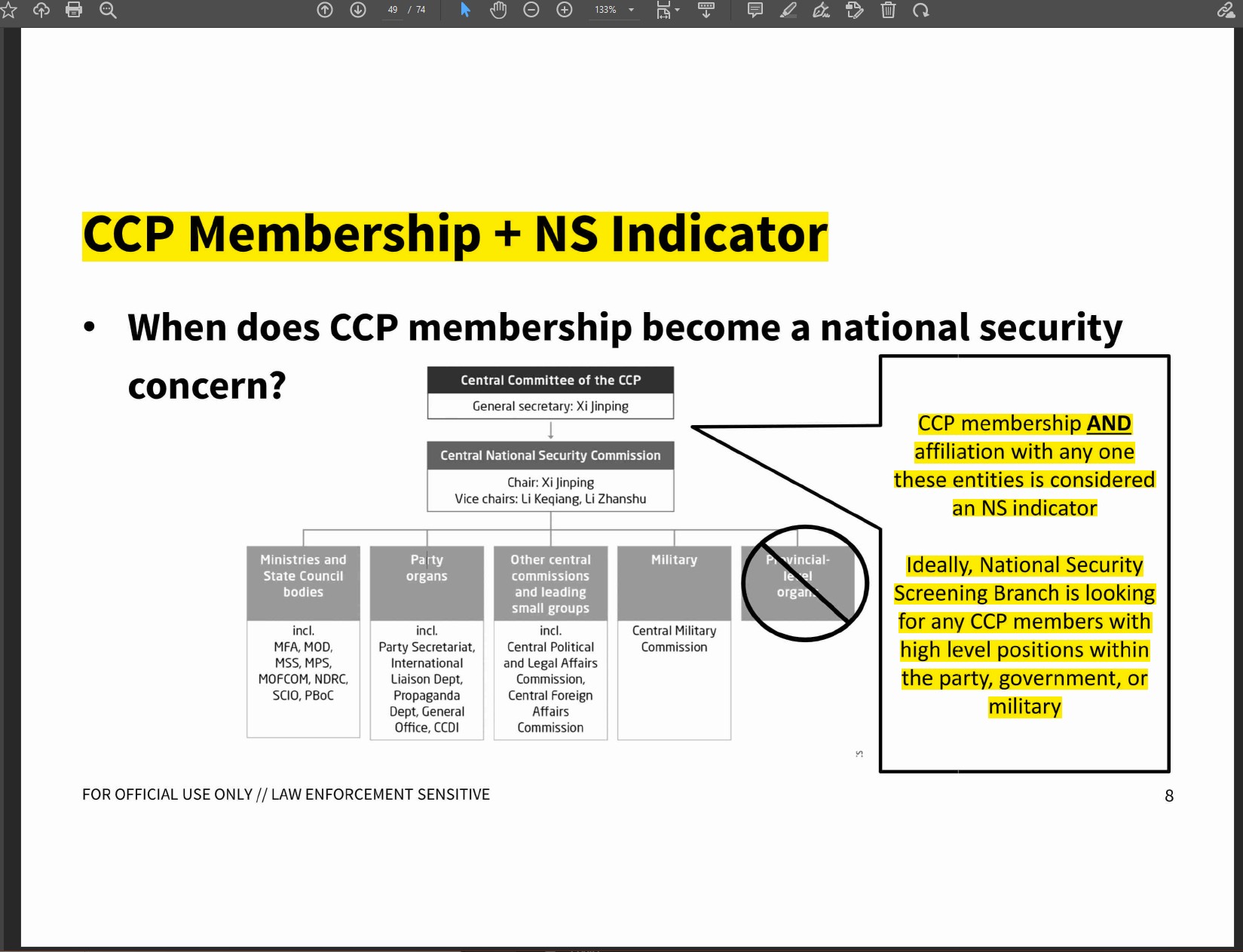 Membership of the Chinese Communist Party (CCP)
Membership of the Chinese Communist Party (CCP)
The CCP is the ruling party of the PRC, and USCIS looks unfavorably upon the immigration of loyal CCP members to the United States.
USCIS recognizes that many individual members of the CCP, including those who joined it willingly, may not be active participants in the party’s work and projects that are unfavorable to U.S. interests. Hence, CCP membership alone is not a trigger for FDNS review; there must be an additional factor.
As the aforementioned chart indicates, FDNS reviews may be flagged when a petitioner is both a member of the CCP and has held “high level positions in the party, government, or military” or is affiliated with such an individual. The chart also lists the organizations, by abbreviation, with which affiliation may trigger such a review. They include bodies of the State Council, CCP organizations, and central commissions that exercise state authority. However, it may be important for Chinese investors to note that provincial organizations belonging to provincial units of the CCP are excluded from constituting a factor for additional review.
Membership or affiliation with a Chinese company affiliated with the PLA
The U.S. Department of Defense maintains a “blacklist” of Chinese companies with strong ties to the PLA. The Department of the Treasury, meanwhile, has a larger list of “Chinese Military-Industrial Complex Companies,” known as the CMIC List. Any EB-5 petitioner with ties to companies on these lists is likely to be flagged for FDNS review. The latest defense blacklist of companies was released in 2021, and is available here.
Additionally, pursuant to new national defense laws in 2021, the U.S. government has released a list of “Chinese military companies” which may have operations in the United States. Over 100 of China’s largest companies are included on the list. Any affiliation with these companies is also likely to prompt an FDNS review.
Affiliation with Chinese technology companies and high-level Chinese technology executives
USCIS is likely to make referrals of applicants to FDNS in cases where they have a demonstrated family or financial relationship to a Chinese technology company, such as Huawei, Bytedance, or Alibaba. The screenshot below is an example of such a circumstance that may merit a referral.
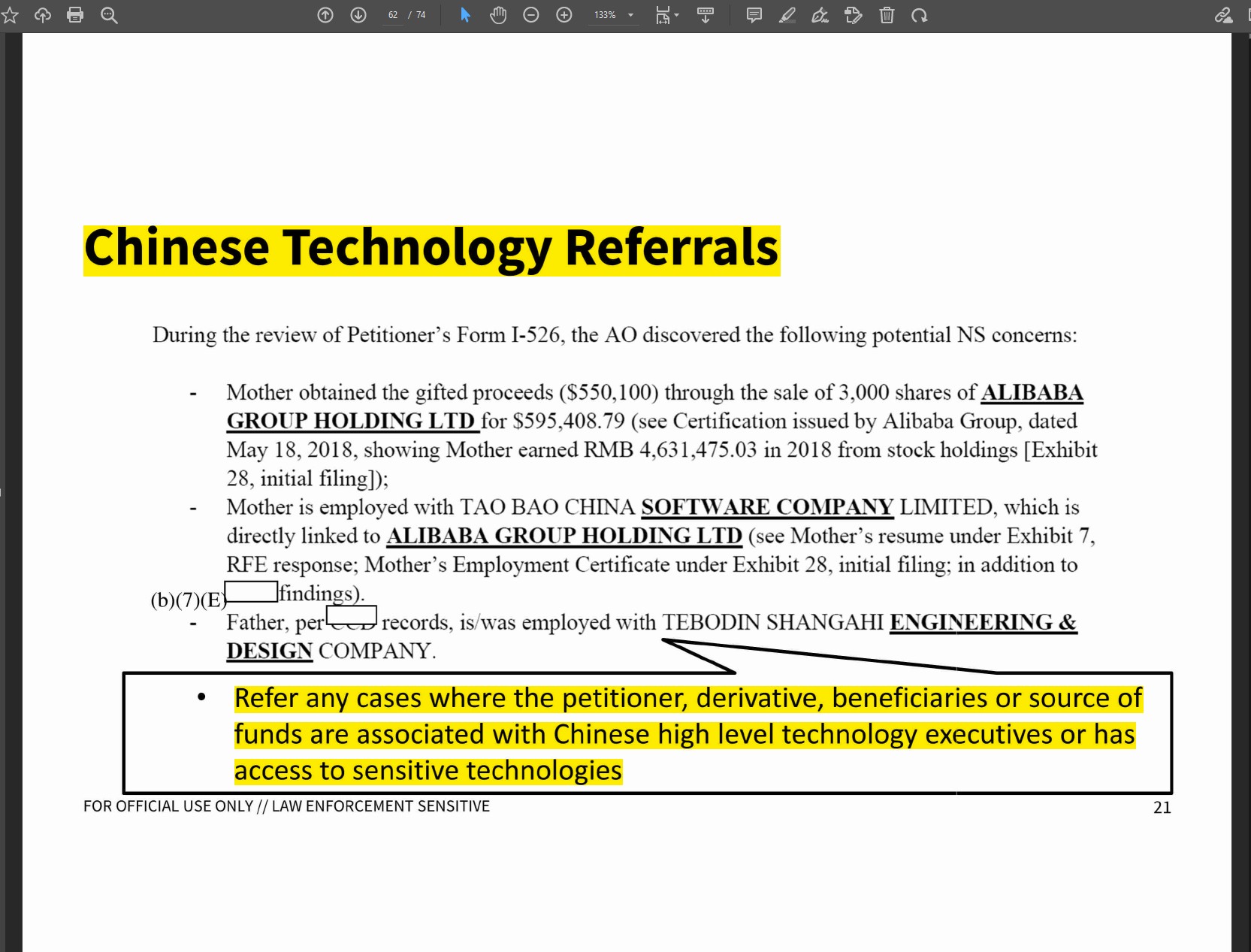
USCIS’s targeting of Chinese tech companies is consistent with the experience of EB-5 practitioners and with other documents uncovered through FOIA litigation.
Affiliation with Chinese Scholar Student Association (CSSA) at an U.S. university
As highlighted in the example from the agency’s internal documents Chinese students who have ever been a part of any CSSA organization during their studies within the U.S. will also merit a higher level of scrutiny to their EB-5 application process.
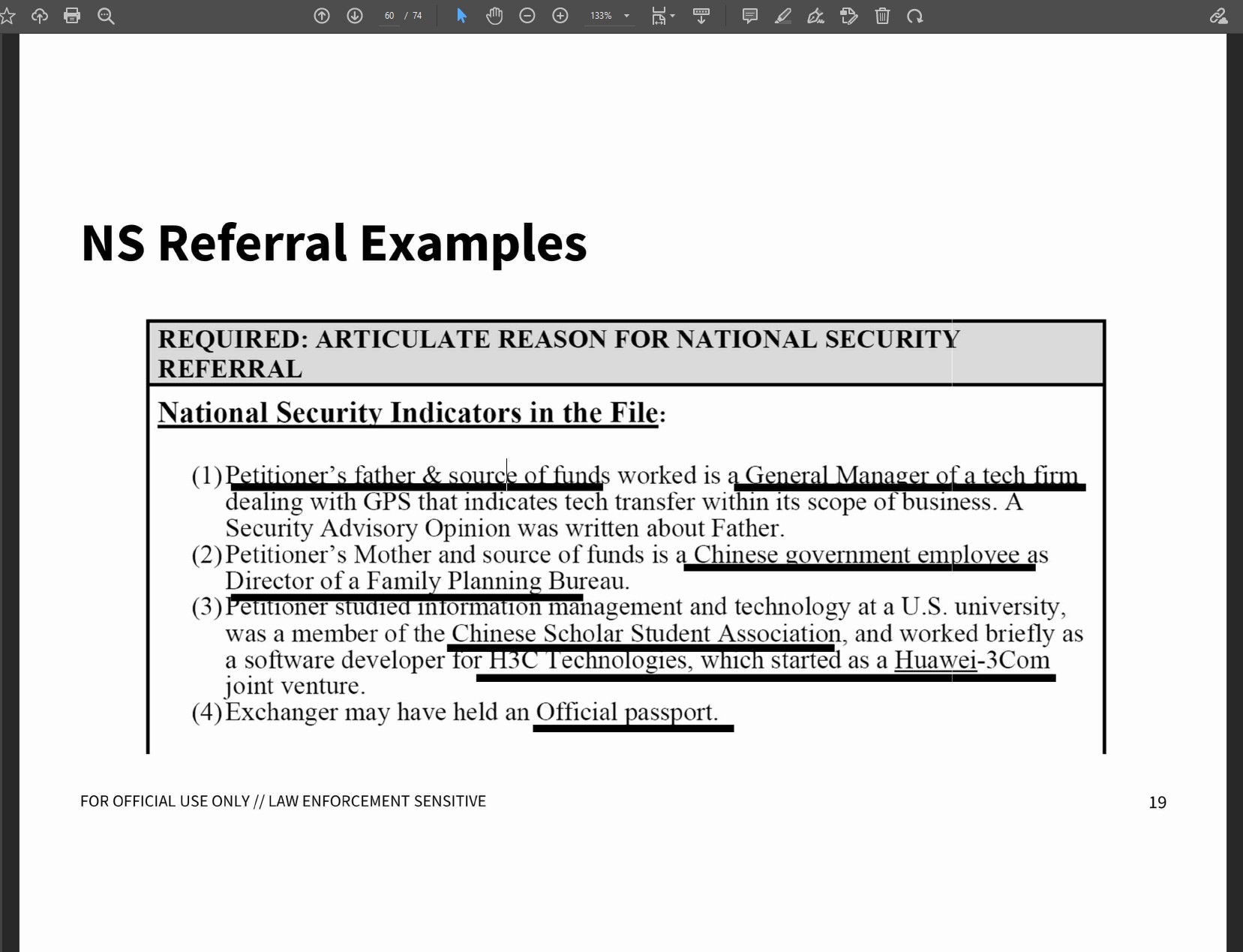
Closing Thoughts
As mentioned in the beginning of this blog the material acquired through FOIA requests and litigation can be pivotal to the success of an investor’s petition. With this information we hope investors that are facing delays or have been denied due to the standards mentioned above are better informed along with prospective investors whose background may be a cause for concern.
AIIA has invested a great deal of time and resources in acquiring, analyzing, and publishing this information. We rely solely on donations to do this work. If you value our work to fight for investors and obtain information about the EB-5 program, please donate to us. Your support is vital to ensuring we succeed at getting previously-unknown information about the EB-5 program and internal USCIS adjudication policies such as those published in this article today.
AIIA members are able to request that we seek specific information in our FOIA lawsuits and requests. We have a demonstrated track record of obtaining information from USCIS, and a reputation for causing them legal grief if they deny our requests. This leads to us getting information easily. If you would like to understand any aspect of the EB-5 program more thoroughly — as an investor, attorney, regional center, or industry member — please consider becoming a member of AIIA today. Full copies of our FOIA results along with a complete index is available to all of our members.

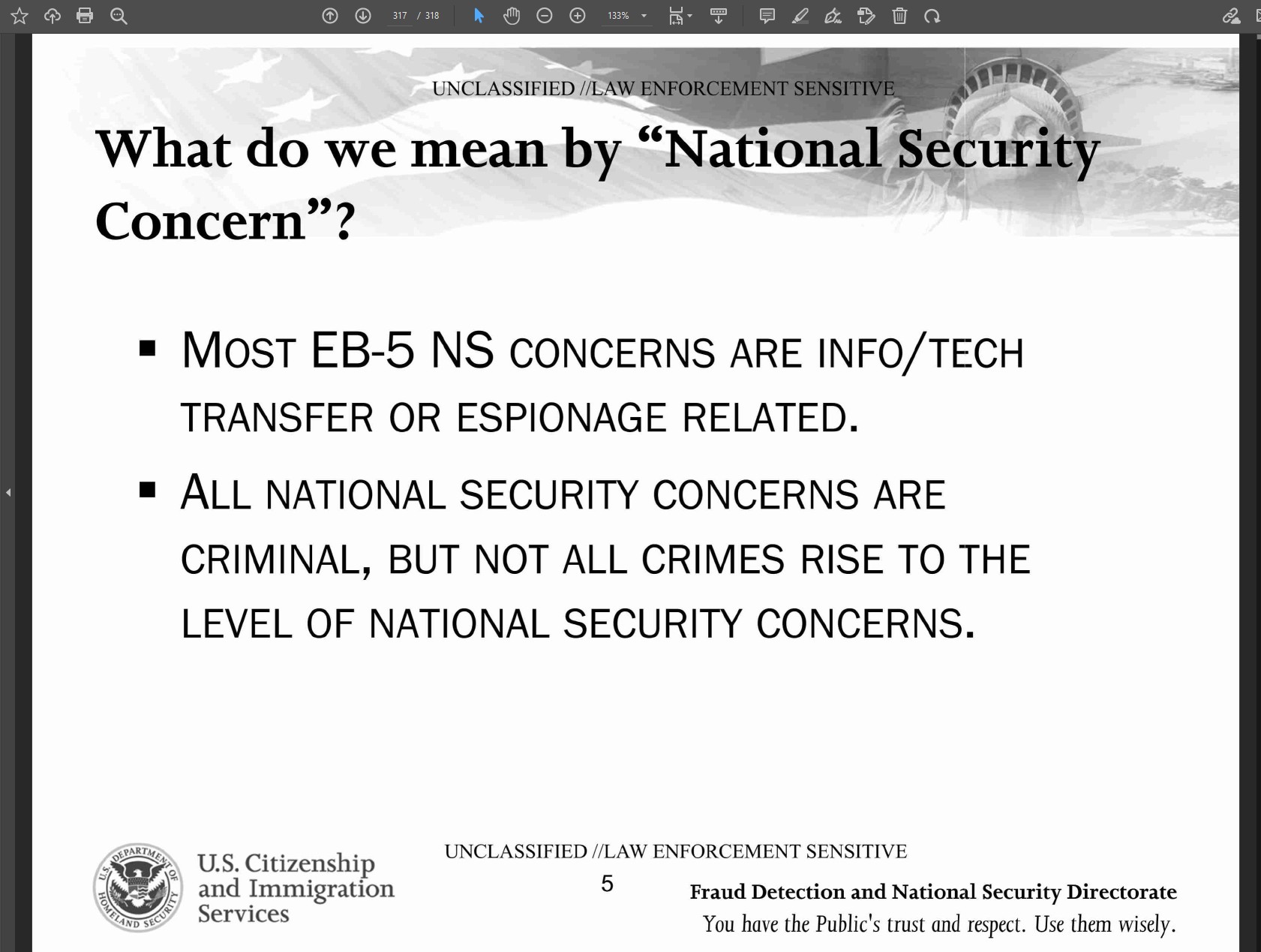
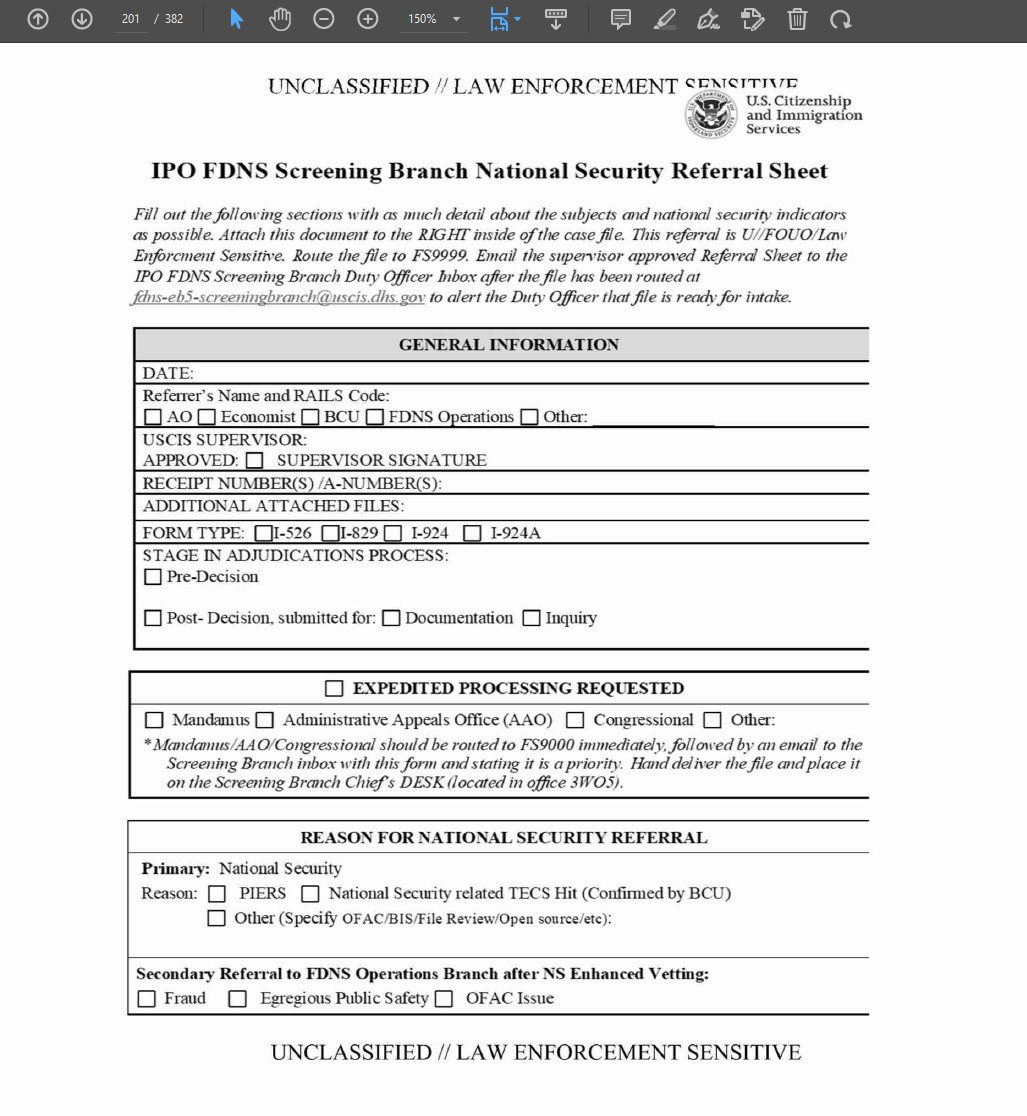
Leave a Reply